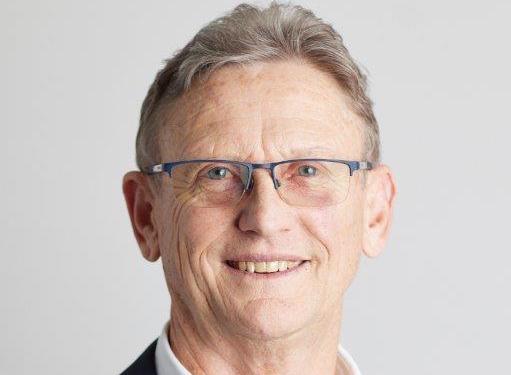After a more than four decade career that has spanned producing, steering the establishment of Fox Studios Australia and leading Docklands Studios Melbourne (DSM), Rod Allan has announced his retirement.
Allan has been the CEO of DSM since 2009, and hangs up his hat as the studio prepares to open its $46 million sixth sound stage. At 3,700 square metres, it will expand the complex’s capacity by 60 per cent and includes a 900,000 litre sub-floor tank for underwater filming.
The executive, who has worked closely with Ausfilm to bring projects to Australia, departs as global demand for studio space is at an all time high.
Despite Melbourne being the most locked down city in the world, Docklands has over the past two years accommodated Paramount’s Shantaram, Netflix’ Clickbait, and the first season of La Brea. The studio is currently home of Garth Davis’ Foe, with other 2022 bookings including the second instalment of La Brea and Michael Gracey’s Robbie Williams’ biopic Better Man.
“It’s time,” Allan tells IF of his decision to retire.
“Being able to build stage six, and substantially increase Victoria’s capability to accomodate big production, that was a terrific opportunity… We finish the building in a couple of weeks. It seems like a pretty good time to pull up stumps.”
Allan’s career began in the Australian Army, graduating from Royal Military College Duntroon before serving as a military observer with the U.N. in the Middle East.
He moved into the screen industry in 1979, studying at AFTRS and going on to freelance, with producing credits on Police State, The Sum of Us and Blue Murder. His time as a producer would prove an asset in his later career in studio management, noting he could understand producer’s pressures and “talk their language”.
In 1995, Allan was brought on to supervise the transition of Sydney’s agricultural showgrounds into Fox Studios Australia, staying on as director of operations from 1996 to 2003. He has also consulted in film studio design and operations in South Africa, New Zealand and Australia.
Looking back at the Fox days, Allan remembers seeing the potential for the complex to provide new opportunities for the industry, and grow capacity and capability within not only Sydney but Australia more broadly.
At that time, the country only had one studio – the Gold Coast’s Village Roadshow Studios – and there was pressure to build an equivalent in NSW. While Allan recalls sceptics, the Sydney Showground was already used as a de facto studio of sorts by the industry in terms of exterior shooting, with halls also used as sound stages – Mighty Morphin’ Power Rangers even filmed there in 1995. This was the chance to turn it into something “world class”.
“The opportunity to convert the showground into a working, functioning studio was terrific. What appealed to me was being able to make a difference and change the landscape of the industry in a substantial way.”
That change came almost straight away. Fox Studios’ first blockbuster client was The Matrix, which moved in progressively as the studios were finished, followed by projects like Star Wars: Episode II Attack of the Clones (a booking which took Allan on multiple trips to the Skywalker Ranch), Mission Impossible II and Moulin Rouge.
“Securing the Star Wars booking was a real ‘moment’. Those early bookings were quite substantial and had the effect of really making people recognise that size film production was something that fitted into Sydney well.”
Since Allan took the lead at Docklands 13 years ago, he has seen the Victorian industry grow substantially, with greater opportunities for creatives and crew, and more variety in the types of projects being made. He believes the studio has had a hand in that as a base for projects, even if just for production offices like 2017’s Lion.
“We see our role as being an integral part in the ecosystem of screen in Victoria, and we’ve always tried to support filmmakers when we can, by providing the facilities that we can. It’s been an important ethic in our approach to running the business; that we’re primarily here to support the local screen industry.”
Allan’s eye to the domestic industry goes back to when he first took the CEO job, when his biggest challenge was to convince the sector that the studios were not just for international work. The complex had then been open for five years as a public-private partnership, but it had not been as successful as initially anticipated, with the state government taking full ownership in 2008.
“We worked really hard to change that perception amongst the local film community, [to convince them] that this was an asset for the entire industry and that domestic production had just as much right to access the facilities,” he says.
Over the ensuing years, DSM has been home to the “whole gamut” of production – from TVCs, short film and music videos, through to domestic and international feature film and television production that spans HBO series The Leftovers through to gritty Aussie indie Choir Girl. It’s also provided production offices, rehearsal space for other arts agencies like Opera Australia, and been a place for technicians to store equipment and gear.
For Allan, there has been many highlights over his career, but one of the biggest joys has been in working with his team, and “enthusiastic and creative” clients.
“To be successful in our business as a freelancer you have to have your wits and smarts about you. I liked the dynamic of working in an environment where you would encounter these people.
“The other thing is that, in the end, the studio is a factory. It’s about making product, but every single product that is made here is completely different than the one before. The sets are different, the people are different, the scripts are different. It’s constantly dynamic.
“I have thoroughly enjoyed it.”
Allan will depart DSM at the end of March, with his replacement will be announced before his departure.


